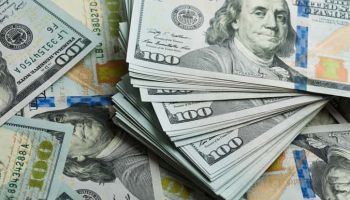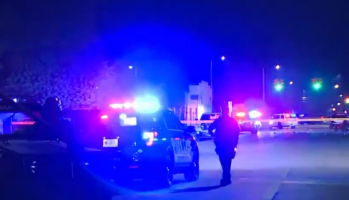HONG KONG — After five months of being at the forefront of the coronavirus pandemic, new infections in Hong Kong have slowed to a trickle, and the city is slowly getting back to normal. Which, these days, means protests.
Many are not waiting for the final coronavirus restrictions to be lifted. During protests over the weekend, police arrested some 230 people on a variety of charges, including unlawful assembly and refusing to abide by social distancing regulations.
Such disturbances are only likely to increase, with summer being the city’s traditional protest season around the key anniversaries of June 4, for the Tiananmen Square massacre, and July 1, which marks Hong Kong’s handover to Chinese control, as well as a host of new key dates created by last year’s protests.
The government has attempted to wield public opinion against the protesters, pointing out that people are already hurting economically from the coronavirus crisis and now is not the time for further public disturbance. The heavy police response to initial protests also seems designed to dissuade anyone on the fence from joining in.
At the same time, however, the government is pushing ahead with a piece of legislation that — like the extradition bill that kicked off last year’s protests — has sparked concern among moderate Hong Kongers about increasing Chinese encroachment and undermining of the city’s political freedoms.
On Tuesday, the government said lawmakers will resume debate on the Chinese national anthem bill on May 27. The proposed law will make it a crime punishable by up to three years in prison “to insult the national anthem.”
“The national anthem is the symbol and sign of the country,” Matthew Cheung, Hong Kong’s chief secretary and number two official, said in a statement. “(The purpose of the law) is to preserve the dignity of the national anthem so that members of the community would respect the national anthem.”
Hong Kong is part of China, but the semi-autonomous city has its own legal and political system, with limited democracy and greater personal freedoms than on the mainland. The city competes as itself in many arenas, such as the Olympics and international football matches, but uses China’s national anthem, “March of the Volunteers,” which is also played at official ceremonies.
No disrespect
The proposed law mirrors legislation passed in Beijing in September 2017, amid widespread anger in the mainland at Hong Kong football fans booing the country’s national anthemduring international matches.
But it has taken almost three years for the same rules to be applied in Hong Kong. That is despite it being added to Annex III of Hong Kong’s Basic Law, the city’s de facto constitution, which requires the city’s government to apply the national anthem law locally “by way of promulgation or legislation.”
Per Article 18 of the Basic Law, “laws listed in Annex III … shall be confined to those relating to defense and foreign affairs as well as other matters outside the limits of the autonomy of the Region.” Previous laws introduced in Hong Kong by law of Annex III include regulations regarding China’s exclusive economic zone, which has an effect on territorial claims in the South China Sea, and legislation regarding foreign banks.
That this can be applied to cover legislation regulating the country’s national anthem shows the fairly broad remit Beijing sees the law as providing. What checks exist on this ability are only really provided by the Hong Kong legislature, and the local government’s previously stated commitment to allowing lawmakers to debate such laws rather than simply promulgating them unilaterally.
Nor is Annex III the only way the Chinese government can influence laws in the semi-autonomous city, beyond its appointment of Hong Kong’s leader and influence on pro-Beijing lawmakers. The NPC can also issue “interpretations” of constitutional issues, such as in 2016, when it intervened in a debate over oath-taking to rule that lawmakers who had staged protests during their swearing-in ceremony had voided their election and were barred from taking their seats.
Hong Kong’s legislature began debating the national anthem law early last year, before the protests over the extradition bill brought all procedures to a stop and shut down the legislature for several months. In its statement Tuesday, the government said it wanted to pass the law before the current legislative session ends in July and any outstanding work becomes defunct, meaning the entire process would have to start over again.
Sweeping powers
Passage of the law seems inevitable without the kind of radical action taken by protesters last year to block the extradition bill. Opposition lawmakers do not have the numbers to block the law, and while filibustering and other procedural tactics have succeeded in slowing it in the committee stage, they have largely run their course.
Once law, it will be illegal to misuse or insult “March of the Volunteers,” with offenders subject to a fine of up to $6,450 (50,000 HKD), and three years in prison. Schoolchildren, including those at international schools, would also be legally required to learn the anthem, which opens with the line, “Arise, we who refuse to be slaves!”
Multiple legal and human rights bodies have criticized the law for undermining freedom of expression and contravening Hong Kong’s constitutional protections.
Both the Hong Kong Bar Association and the Progressive Lawyer’s Group (PLG), which represent legal professionals in the city, raised concerns that the wording of the law left it open to abuse and uncertainty, with the PLG saying in a statement that it is “poorly drafted and appallingly lacking in clarity.”
A joint statement from 38 Hong Kong civil society groups warned the law “could have chilling effects on dissent and become a tool for the government to suppress opposition.












